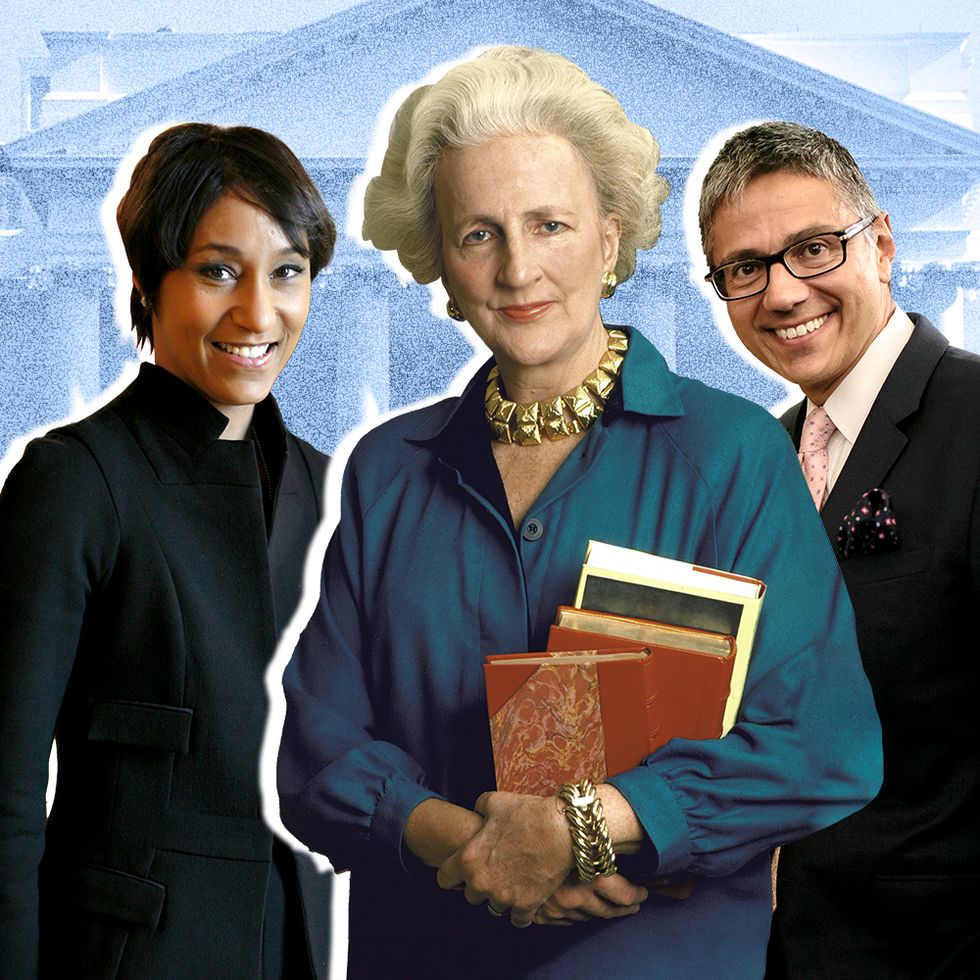When one thinks of the role a White House (WH) Social Secretary plays in the president’s administration, upbeat images of organizing parties, planning menus and greeting dignitaries may readily come to mind.
However, in delving a bit deeper, it quickly becomes apparent that the job of a WH Social Secretary, going beyond that of a traditional party planner, entails the skills of a master juggler challenged to perform on the nation’s grandest stage.
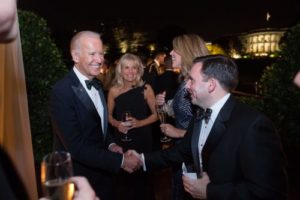
The Social Secretary helms the White House Social Office, located in the East Wing of the White House Complex. Though afforded a most competent staff to help expedite all aspects of the job; ultimately, he/she is the one who will suffer the consequences should anything go awry.
Yet, the job’s greatest challenge, may be to present the interior of the White House, also commonly referred to as ‘America’s House’ or the ‘People’s House’, as a sophisticated albeit accessible, welcoming environment.
Historically speaking, presidents have long appointed Social Secretaries of their own choosing. In reviewing the list of the 31 Social Secretaries to have held the title, we find little diversity in terms of age, gender, race and sexual orientation until more recently.
Though the traditional path to becoming a WH social secretary involved having some type of family pedigree others earned their stripes as event planners in the private sectors, and yet others, came up through the ranks in the public sector.
Through research what we discover is that the commonality among the roster of WH Social Secretaries is that, in some shape or form all: a) had a pre-existing connection to the existing administration and b) had an innate ability to remain calm and collected under unimaginable amounts of pressure.
Generally speaking, an appointment as WH Social Secretary is a demonstration of tremendous trust for, the person selected will be granted extraordinary access and required to engage in a high level of intimacy with the President and his administration.
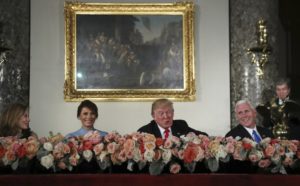
While residence in the WH has been described as ‘living in a fish bowl’, it remains important for the current Administration to create a connection with the world beyond their immediate domain. Thus, as one can imagine, since President Theodore Roosevelt, the 26th President of the U.S., who in 1901 brought onboard the very first ‘designated’ WH Social Secretary (Belle Hagner, recognized for her work with numerous elected officials and government agencies), to the Trump Administration (45th U.S. President, Italian American event planner Anna Cristina “Rickie” Niceta Lloyd) and now President Biden’s Administration (46th President), the position has greatly evolved.
According to The White House Historical Association, in its infancy, the job, was intended to ‘be seen and not heard’ in its support of the First Lady’s efforts to plan, arrange, coordinate and, generally speaking, provide guidance for the entire slate of ‘official political/statehouse’ and ‘personal’ social events hosted by the president and his family.
During the same era, the majority of WH Social Secretaries emanated from Aristocratic American families and were considered the authority on etiquette and good graces and expected to infuse an aura of refinement into everything from the selection of invitations and calligraphic styles; compilation of guest lists; configuration of seating arrangements; creation of menus; and the deciding person (outside of the President and First Lady) on related décor and entertainment.

Yet, with the rapidly changing state of the world and regularly rotating transitions of power, the WH Social Secretary, has needed to ‘keep up with the times’. While their core duties remain in tact, their involvement has expanded beyond just the notion of fancy black-tie galas to include a roster of events that uphold the idea of inclusivity and diversity; honor persons’ cultural differences; merge donor relations with guest relations; and best highlight the Administration’s political platform (e.g., one would not want to produce an event reliant upon a huge output of energy, should energy conservation be a top priority of the president).
In modern times, as the WH Social Secretary’s domain a tightly-packed social calendar inclusive of all WH functions from First Lady Teas and the annual Egg Hunt on the lawn to hosting holiday open-house (pre-Covid) public forums, orchestrating formal state dinners with world leaders and planning in-house concerts under the programmatic tile, ‘In Performance at the White House’ with everyone from violinist Itzhak Perlman (George H.W. Bush presidency) to Kid Rock (Trump presidency) and cultural events with high-profile musicians, actors and et al, other creative artists (poetry slam readings with “Hamilton” creator Lin Manuel Miranda – Obama presidency).
On call 24/7, WH Social Secretaries oversee a litany of tasks inclusive of: rolling-out the red carpet for foreign visiting dignitaries and other VIPs; prepping elected officials on customs and traditions of persons of varying races and ethnicities; and ensuring planned events and relations meet with (if not exceed) the high standards one would expect of the WH, the highest office in the land.
In a testament to the importance of demonstrating respect for people regardless of their 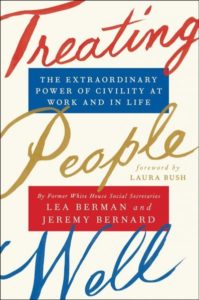 origins, both former WH Social Secretaries, Lea Berman (Bush Administration) and Jeremy Bernard (Obama Administration), despite their stark differences, came to together to write the book entitled, “Treating People Well: The Extraordinary Power of Civility at Work and in Life.”
origins, both former WH Social Secretaries, Lea Berman (Bush Administration) and Jeremy Bernard (Obama Administration), despite their stark differences, came to together to write the book entitled, “Treating People Well: The Extraordinary Power of Civility at Work and in Life.”
At the forefront of the book is a notable quote from Maya Angelou: “People will forget what you said, people will forget what you did, but people will never forget how you made them feel.”
During long-time party planner Berman’s stint, she focused on creating a welcoming environment where everyone mattered – from the President of the United States and foreign dignitaries on down to the butler and servers at a statehouse dinner.
“You have the president and first lady extending not just their personal hospitality, but American hospitality, and it should reflect the best of what America has to offer,” Berman is reported as saying.
In 2016, Vogue Magazine wrote that, going forward, Berman sees the position shifting away from being an ambassador-type appointment to that of more of a political player.
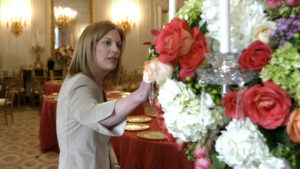
To her point, in contrast to Berman’s congenial style, her co-author on the “Treating People Well…” book and her counterpart during the Obama presidency, Jeremy Bernard took a significantly different tact to how he approached the job.
Despite demonstrating respect and decorum in his activities, Bernard (the first openly gay and first male WH Social Secretary) was reported to have employed a more calculated, political prowess than any of his predecessors. Within the Obama Administration, Jeremy Bernard was the 44th President’s third and final social secretary. According to the New York Times, et al media sources, previous to his WH appointment, Bernard was known as a savvy political mover and shaker with superior donor relations and fundraising abilities.
Perhaps, most unique in his role as Social secretary, Bernard acted as the ‘gatekeeper’ whereby, in his view, White House events were reserved for donors and others considered most apt to further the president’s agenda.
With the Biden Administration fully settled in the White House, what can we expect in terms of WH gatherings and functions, you ask?

Post Covid-19 WH gatherings will surely test the skills of newly appointed WH Social Secretary, Carlos Elizondo, the former Social Secretary to Vice President Biden and Dr. Jill Biden for the entire eight years of the Obama-Biden administration and the first Hispanic American and openly gay man to officially assume the role.
What we know for sure is that many responsibilities of the WH Social Secretary will, as they have for more than a century, continue in a similar high-level fashion. And, above all else, the WH Social Secretary will emphasize the idea of making the WH a welcoming and accessible forum for guests and visitors from all origins and walks of life.

